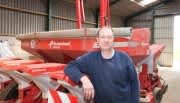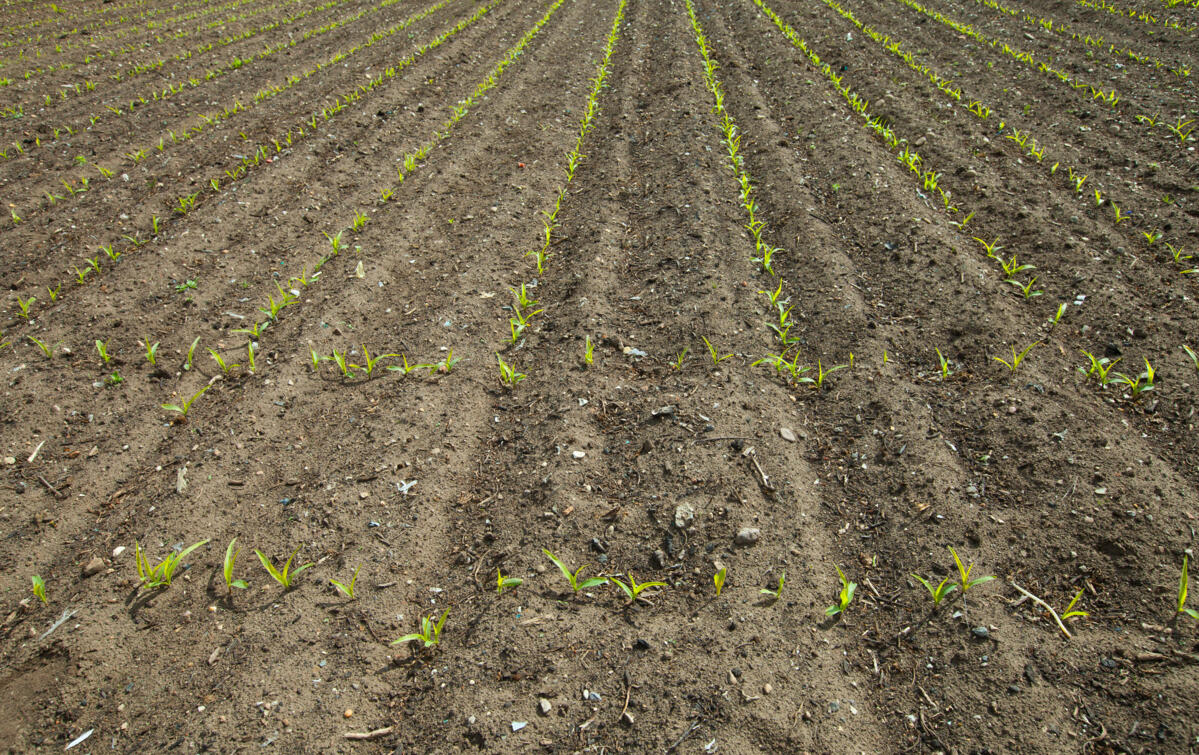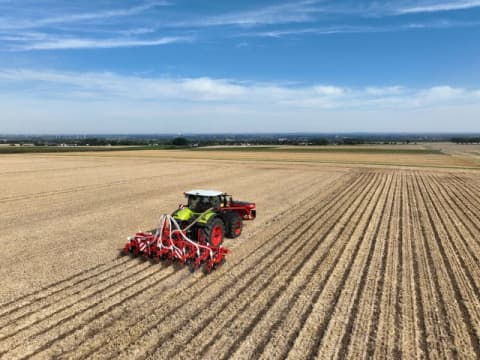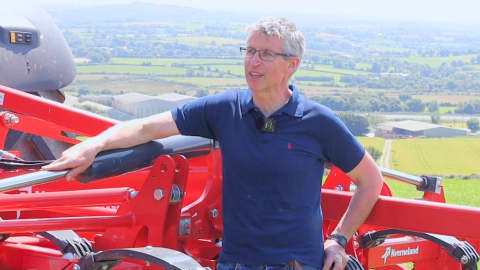From Huggin Farm near Hatfield, Doncaster, Mr Mackintosh grows around 700 acres of crops and also provides a contract harvesting service exclusively for an AD plant recently built on his farm.
“Our carbon footprint is important to the plant’s owners, and our recent move into precision farming practices using Kverneland equipment has made it very easy to show areas where we are improving our efficiency, reducing fuel use and lowering our carbon footprint,” he says.
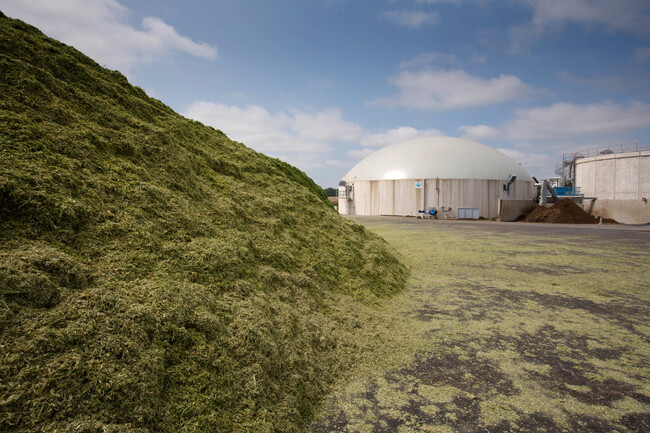 Photo: Tim Scrivener / Agriphoto.com
Photo: Tim Scrivener / Agriphoto.com
Equipment for the task includes a trailed, 8-row Optima maize drill with e-drive, auto stop/start and Tellus dual screen terminal, with which he drills 1,700 acres each season.
In addition, he also operates an Exacta TL GEOSPREADer, offering section control and auto stop/start efficiency to avoid overlaps. The spreader’s flexibility when it comes to tramline widths and section control enables Mr Mackintosh to work as efficiently as possible.
Both machines are used on a Case Puma 160 CVX tractor, equipped with autosteer.
The 5MW gas-to-gas AD plant needs around 120 tonnes of feedstock/day. This appetite adds up to a harvesting workload that includes 2,400 acres of maize, 400 acres of grass and 400 acres of whole crop rye.
Some of the forage is grown at Huggin Farm, with the remaining acreage grown by neighbouring farmers in the Hatfield area.
“With maize being new to the area, we are planting up to 18 different varieties each season,” he says. “This will allow us to determine which varieties give the best results for AD use across the different soil types, and at different drilling dates.”
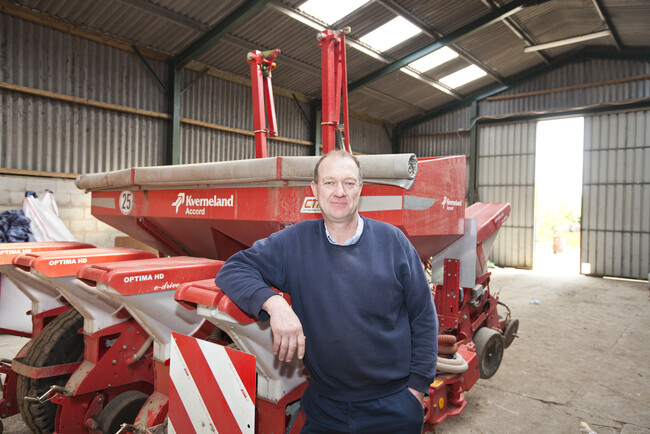
“And the simplicity of the Optima drill means we can clean out and change varieties in just 10 minutes.”
Mr Mackintosh also has praise for how easy it is to set up the Optima drill.
“There are no chains and sprockets to swap, we just make changes on the Tellus screen. With automatic control of each seeding unit, it is extremely accurate - there are no overlaps, and no wasted seeds.”
“With task reporting, we can prove what we’ve used and where,” he says.
And such efficiency is not exclusive to the optima – he says the Exacta TL GEOSPREADer is every bit as impressive as the drill.
“Buying the spreader was a leap of faith,” he recalls. “It was expensive to justify – until we used it.”
“It knows exactly where you’ve spread and where you’ve not spread, and it just fills in the gaps,” he says. “It is brilliant. Our biggest problem is feeding it.”
To improve logistics, Mr Mackintosh uses a tractor a trailer to support the spreader, taking fertiliser to the field. And the tractor’s front linkage is equipped with a specially adapted triplex forklift mast, for refilling the spreader.
Tramline widths are a mix of 24m and 30m – the latter are opportunistic in maize, where row widths allow spreading at wider and more efficient widths.
“The use of Kverneland precision farming technology has given us a huge leap forward in productivity and efficiency,” he says. “And being able to monitor, record and report on how we maintain a low carbon footprint for our biogas customer is a huge benefit.”
14th July 2016

